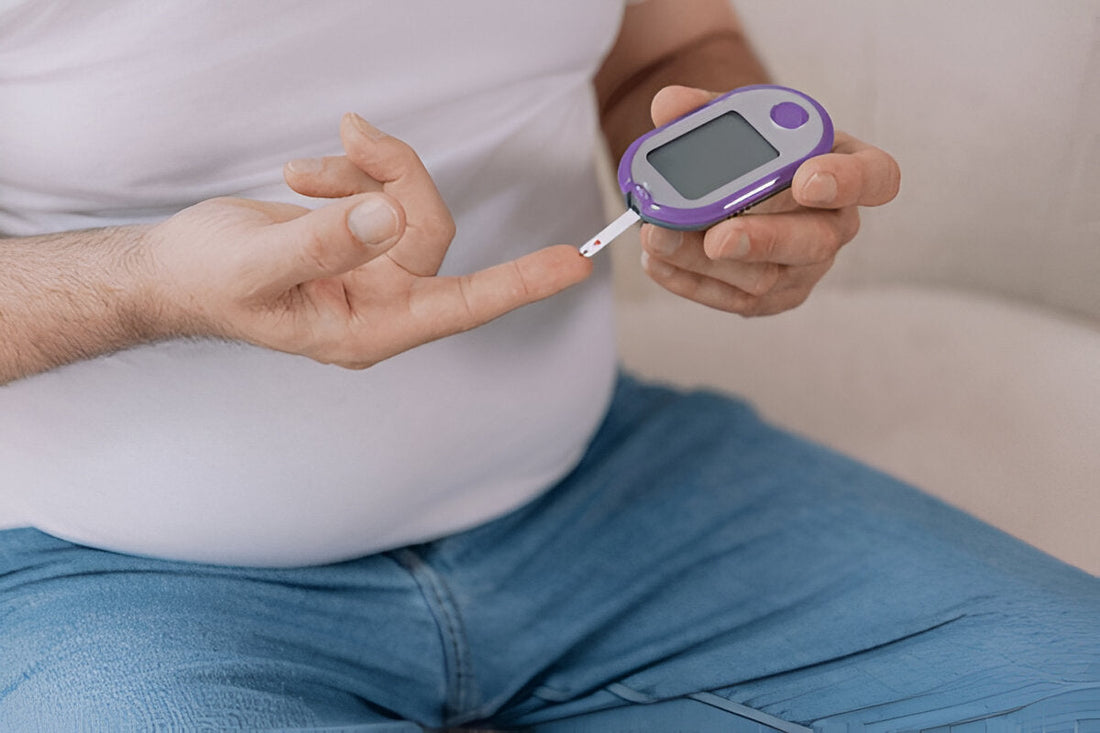
Diabetes health
Share
Understanding Diabetes: Health Risks and Ways to Manage It
Diabetes is a chronic condition that affects millions worldwide. Whether it's Type 1, Type 2, or gestational diabetes, it poses serious health risks if not managed properly. But with awareness, lifestyle changes, and timely treatment, many of its complications can be prevented.
What is Diabetes?
Diabetes occurs when your blood sugar (glucose) levels are too high. This happens either because your body doesn't produce enough insulin (Type 1), becomes resistant to insulin (Type 2), or due to hormonal changes during pregnancy (gestational diabetes).
Health Risks of Diabetes
If left uncontrolled, diabetes can lead to several serious complications:
1. Heart Disease & Stroke
High blood sugar levels damage blood vessels and increase the risk of high blood pressure, leading to heart attacks and strokes.
2. Kidney Damage (Nephropathy)
Diabetes can damage the kidneys' filtering system, potentially leading to kidney failure.
3. Nerve Damage (Neuropathy)
High glucose levels can damage nerves, especially in the legs and feet, causing numbness, pain, and even amputations.
4. Eye Problems (Retinopathy)
Diabetes increases the risk of cataracts, glaucoma, and can cause blindness due to damage to the retina.
5. Foot Issues
Reduced blood flow and nerve damage can lead to foot ulcers, infections, and, in severe cases, amputation.
6. Skin Conditions
Diabetics are more prone to skin infections, including fungal and bacterial infections.
Is There a Cure for Diabetes?
Currently, there is no permanent cure for diabetes, but Type 2 diabetes can often be reversed or put into remission with intensive lifestyle changes. Here's how:
1. Healthy Diet
-
Eat high-fiber, low-glycemic foods (whole grains, vegetables, legumes).
-
Avoid sugar, processed foods, and unhealthy fats.
-
Eat smaller, balanced meals throughout the day.
2. Regular Exercise
-
Aim for at least 30 minutes of moderate activity 5 times a week (e.g., walking, cycling).
-
Exercise improves insulin sensitivity and helps lower blood sugar levels.
3. Weight Management
-
Losing even 5-10% of your body weight can significantly improve blood sugar control.
-
Bariatric surgery may be considered in severe cases.
4. Medication & Insulin
-
Many people with Type 2 diabetes require oral medication or insulin.
-
Type 1 diabetes always requires insulin therapy.
5. Blood Sugar Monitoring
-
Regularly check your glucose levels to avoid highs (hyperglycemia) and lows (hypoglycemia).
Herbal & Natural Remedies (Supportive, Not Substitutes)
Some natural supplements and herbs may help support blood sugar control, but should always be taken under a doctor's guidance:
-
Bitter melon (karela)
-
Fenugreek (methi)
-
Cinnamon
-
Berberine
-
Aloe vera
⚠️ These are not cures but may aid in managing blood sugar when used responsibly.
Final Thoughts
Living with diabetes requires discipline, but it is manageable. Early diagnosis, routine checkups, and proactive care can help you lead a full, healthy life. Always consult your healthcare provider before making any significant changes to your treatment or lifestyle.
